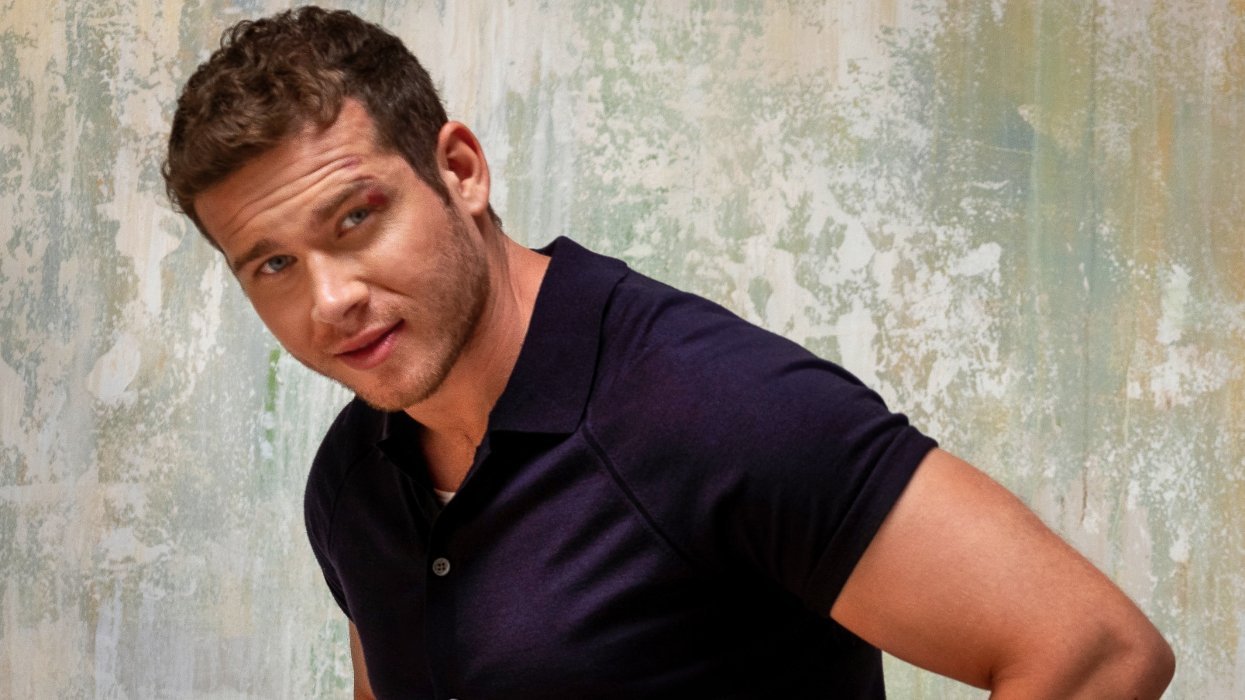LISTEN: SPOTIFY PLAYLIST OF 1983, LAST GREAT YEAR OF POP
Previously... in 1982:
Soft Cell's cover of "Tainted Love" meanders weirdly around the bottom of the Billboard charts for months before ascending into the top 40, where it would settle at number 8. The single -- a starting gun on the second British Invasion -- spends a record-breaking 43 weeks on the Hot 100. (Twenty years later, a cover of the same song by Marilyn Manson would become his biggest U.K. hit.)
January 1983:
Eurythmics open the year with their sophomore album, Sweet Dreams (Are Made of This). A nation that had snored through the band's debut, In the Garden, is caught by surprise as Annie Lennox, in a bright orange crew cut, becomes a ubiquitous presence on magazine covers and the radio. The album's title track soars to number 1 on the Billboard charts, the first of 10 Billboard top 40 hits the band would enjoy in the United States. In striking videos for "Love Is a Stranger" and "Who's That Girl?" Lennox plays with ideas of androgyny. "It's about how malleable the whole idea of self really is, that if I put on a wig and a bit of stubble and a suit, I'm perceived as a man," Lennox told Out in 2009. "The playing with gender was all about that: 'You cannot define me through my sex, I'm more malleable than that.' "
 February:
February:
Echo and the Bunnymen release Porcupine, their third album and biggest U.K. success. Like many musicians of the era, lead singer Ian McCulloch would subsequently credit David Bowie for being his single greatest influence.
Post-punk Scots Orange Juice release "Rip It Up," the epitome of "new pop" and the first U.K. hit song (it went to number 8) to use a Roland TB-303 Bass Line, the synthesizer that would go on to become a staple sound of the era.
March:
Two young men from the well-to-do English city of Bath, Curtis Smith and Roland Orzabal (a.k.a. Tears for Fears), release their first album, The Hurting. The album hits number 1 in the United Kingdom, and all three singles -- "Mad World," "Pale Shelter," and "Change" -- reach the top 5. Although it barely scratches the Billboard charts, it paves the way for the band's massive 1984 single "Shout" and subsequent album, Songs From the Big Chair, which would sell more than 5 million copies in the United States. "It was the period where electronica exploded," recalls Orzabal of 1983. "You have to go back to the creation of the electric guitar to see something similar. Every new piece of technology that came out shaped the sound of someone's next record."
 The title track of Spandau Ballet's third album, True, hits number 1 in the United Kingdom and stays there for four weeks; in the United States it peaks at number 4 on the Billboard Hot 100.
The title track of Spandau Ballet's third album, True, hits number 1 in the United Kingdom and stays there for four weeks; in the United States it peaks at number 4 on the Billboard Hot 100.
Five years after forming in Birmingham, Duran Duran find massive commercial success in the United States with the reissue of "Rio" and the release of "Is There Something I Should Know?" which debuts at number 1 in the United Kingdom before being displaced two weeks later -- by David Bowie's "Let's Dance."
April:
 David Bowie releases Let's Dance, his commercial breakthrough in the United States. The title track races to number 1 on both sides of the Atlantic. "At the time, Let's Dance was not mainstream -- it was virtually a new kind of hybrid, using blues-rock guitar against a dance format," Bowie would later say. "It only seems commercial in hindsight because it sold so many [copies]."
David Bowie releases Let's Dance, his commercial breakthrough in the United States. The title track races to number 1 on both sides of the Atlantic. "At the time, Let's Dance was not mainstream -- it was virtually a new kind of hybrid, using blues-rock guitar against a dance format," Bowie would later say. "It only seems commercial in hindsight because it sold so many [copies]."
"(Keep Feeling) Fascination," by the Human League, is released, reaching number 1 on Billboard's Hot Dance chart in the United States. In the accompanying video, a camera zooms in on a house painted entirely red (this was before CGI), inside which lead singer Phil Oakley -- wearing bright red lipstick and eyeliner -- and the band perform their zingy, synth-heavy dance masterpiece.
MAY:
Talking Heads, America's finest new wave exponents (though with a U.K.-born front man, David Byrne), release their only top 10 hit, the disco-inflected "Burning Down the House." Oddly, it fails to chart in the United Kingdom, where the band has enjoyed some its biggest successes -- though a cover version by Tom Jones and the Cardigans does make the top 10 in 1999.
New Order's "Blue Monday" changes everything, becoming the biggest selling 12-inch of all time and the ubiquitous sound of Europe throughout that year. Provocatively, it is left off the band's 1983 album, Power, Corruption, & Lies. "I lugged my cassette player with me to study in France for six weeks that summer with just that tape, and I played it at full volume out of the window of my dorm until it broke," recalls Nick Sullivan, fashion director of Esquire. "I put on 'Blue Monday' when I go to the gym and it doesn't feel like a tune from 30 years ago -- it still feels new."
June:
 One of the first new wave groups to receive mainstream success, The Police release Synchronicity and hit number 1 in the United Kingdom and the United States, where the album will sell 8 million copies. Although heavily influenced by reggae, it was the most synth-laden album the band put out.
One of the first new wave groups to receive mainstream success, The Police release Synchronicity and hit number 1 in the United Kingdom and the United States, where the album will sell 8 million copies. Although heavily influenced by reggae, it was the most synth-laden album the band put out.
July:
Wham!'s debut album, Fantastic, marks the arrival of one of the decade's most spectacular successes, with more than 25 million record sales in the four years from 1982 to 1986.
 You and Me Both, the second and final album by Yazoo (or Yaz in the United States), is released, featuring the hit single "Nobody's Diary." Was there a more influential champion of synthpop than Vince Clarke, a founding member of Depeche Mode, Yazoo, and Erasure? Although Yazoo's tenure was brief, the band's reach was long. On an episode of NPR's Fresh Air, Antony Hegarty of Antony and the Johnsons recalled that the objective of the self-titled debut album by Hercules and Love Affair, on which he'd guest-starred, was to "sound as much like Yazoo as we can."
You and Me Both, the second and final album by Yazoo (or Yaz in the United States), is released, featuring the hit single "Nobody's Diary." Was there a more influential champion of synthpop than Vince Clarke, a founding member of Depeche Mode, Yazoo, and Erasure? Although Yazoo's tenure was brief, the band's reach was long. On an episode of NPR's Fresh Air, Antony Hegarty of Antony and the Johnsons recalled that the objective of the self-titled debut album by Hercules and Love Affair, on which he'd guest-starred, was to "sound as much like Yazoo as we can."
Madonna, by Madonna, released on July 27, will soon rewrite history, sending the pendulum back in the direction of U.S. pop and establishing one of the most enduring careers in music. But her debut album takes many of its cues from the synthpop invasion, drawing heavily on the latest technology -- Moog bass and the Oberheim OB-X synthesizer beloved by electronic pioneer Jean Michel Jarre.
August:
Depeche Mode's third album, Construction Time Again, is released (see November).
September:
"Girls Just Want to Have Fun," a bright slice of exuberant pop and an early exemplar of girl power, establishes Cyndi Lauper's solo career. The song goes on to become one of the most covered of all time, by everyone from Miley Cyrus to Katy Perry, while Lauper becomes a gay icon and one of our most consistent and effective allies. Today it's de rigueur for a young pop diva to establish her credentials with the gays -- in 1983, it wasn't.
October:
Culture Club lands with a bang with their definitive sophomore album, Colour by Numbers, which goes on to sell 10 million copies worldwide (almost half of them in the United States). Its hit singles include "Karma Chameleon," "Church of the Poison Mind," "Victims," and "It's a Miracle." With Frankie Goes to Hollywood just around the corner, this might be the gayest month in the history of pop.
"All the nice boys love sea men," ran the tag line of the outrageous campaign accompanying the release of "Relax," the debut single from Frankie Goes to Hollywood. The uncompromising lyrics -- "Relax, don't do it when you want to suck to it" -- and raunchy antics of out gay front man Holly Johnson (he'd taken his first name from Warhol superstar Holly Woodlawn) prompt the BBC to ban the single from being played on air. Naturally, the track immediately rises to number 1 in the charts, becoming one of the most commercially successful singles of the decade, racking up 52 weeks in the top 75.
"This Charming Man," the second single by the Smiths, evokes a coded world of gay desire in contrast to the overt, hypersexed "Relax." Morrissey will continue to play coy throughout his subsequent career, disdaining what he described to journalist Barney Hoskyns as "this festive faggot thing." The single also establishes Morrissey's use of archaic phrasing and borrowed lines -- "This jumped-up pantry boy who never knew his place" is lifted from the homoerotic 1972 film Sleuth. On the BBC's weekly charts show Top of the Pops, Morrissey entrances brittle, shy teenagers across the nation with a performance in which he weaves around the stage waving a bouquet of gladioli.
Cyndi Lauper's first solo album, She's So Unusual, is released and goes on to sell more than 22 million copies worldwide, making it one of the best-selling albums of the decade.
November:
Depeche Mode's "Everything Counts," a piece of pop perfection and the band's first use of sampling, is released in the United States to scant attention (four months after reaching number 6 in the United Kingdom), but it sets the template -- catchy and melancholy -- for the band's subsequently brilliant career. "Sexual barriers are silly," guitarist and songwriter Martin Gore would tell No. 1 magazine in 1985. "My girlfriend and I swap clothes, makeup, anything. So what?" In 2012, Gore gave voice to a widespread feeling that reality shows such as American Idol had destroyed the kind of creativity that had flourished in 1983. "I'm not advocating violence, but I think somebody should shoot Simon Cowell," he said. Point taken.
December:
"Beat Box," by the newly formed Art of Noise, finds fame as one of the earliest and most influential hip-hop songs, hitting number 1 on the American dance chart in February 1984. Incredibly inventive, the song harnesses the Fairlight synthesizer -- the instrument du jour -- to spectacular effect.
The Pretenders's "2,000 Miles" proves there is such a thing as a good Christmas song.
Epilogue: The second British Invasion would endure well into 1984, but a year later, the tide had turned definitively back in the opposite direction as Madonna, Bruce Springsteen, and Prince dominated the charts. "There's was hunger for change, and that was a good thing and a bad thing," says Orzabal of the rise of British synthpop. "It's the tide that sweeps you in and it's the tide that rapidly sweeps you back out again."
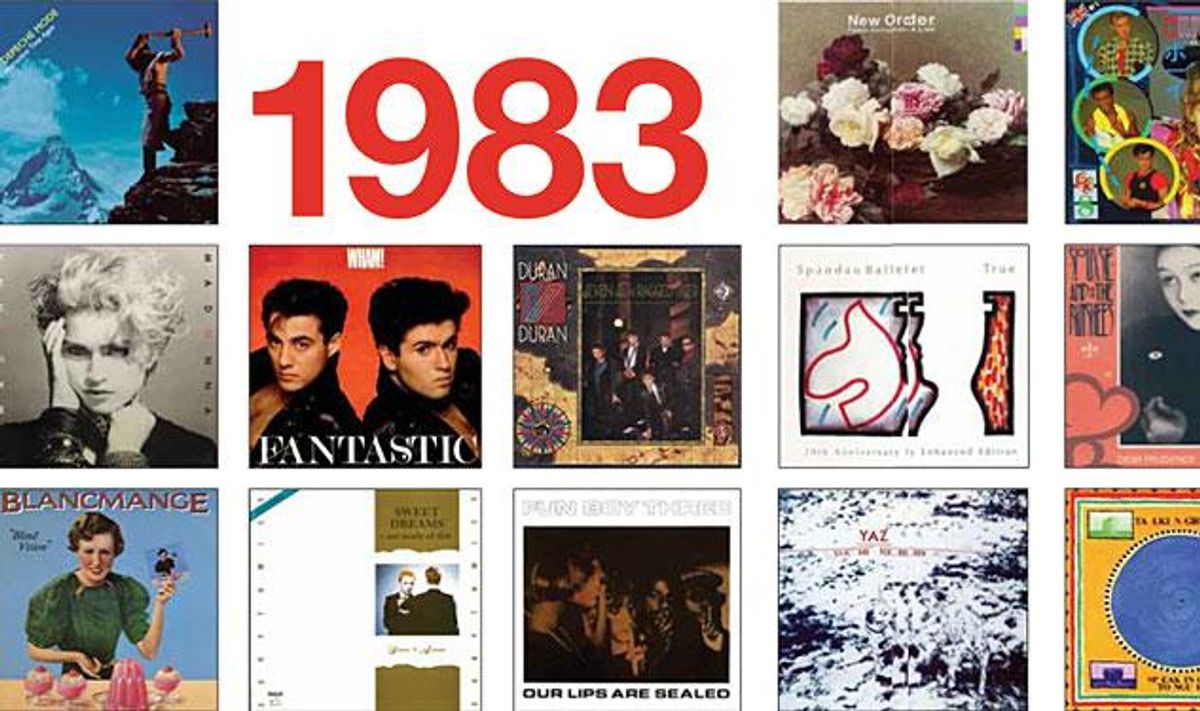



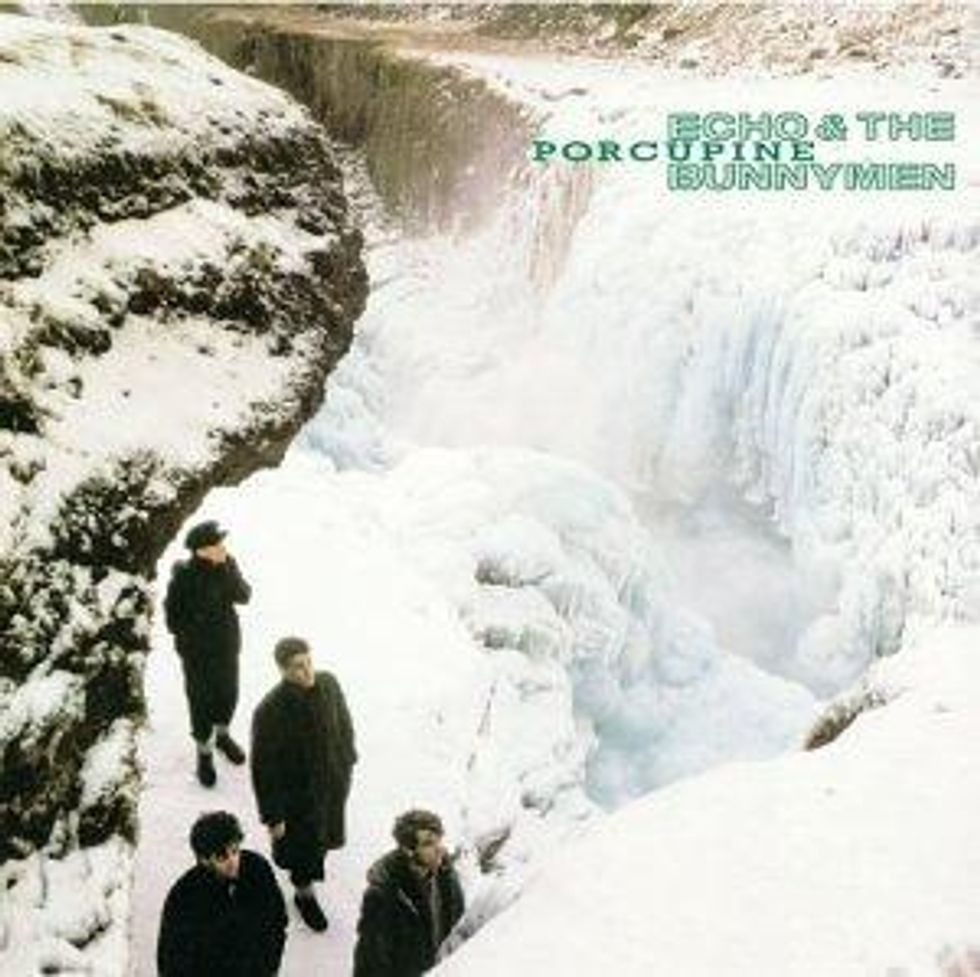 February:
February: The title track of Spandau Ballet's third album, True, hits number 1 in the United Kingdom and stays there for four weeks; in the United States it peaks at number 4 on the Billboard Hot 100.
The title track of Spandau Ballet's third album, True, hits number 1 in the United Kingdom and stays there for four weeks; in the United States it peaks at number 4 on the Billboard Hot 100.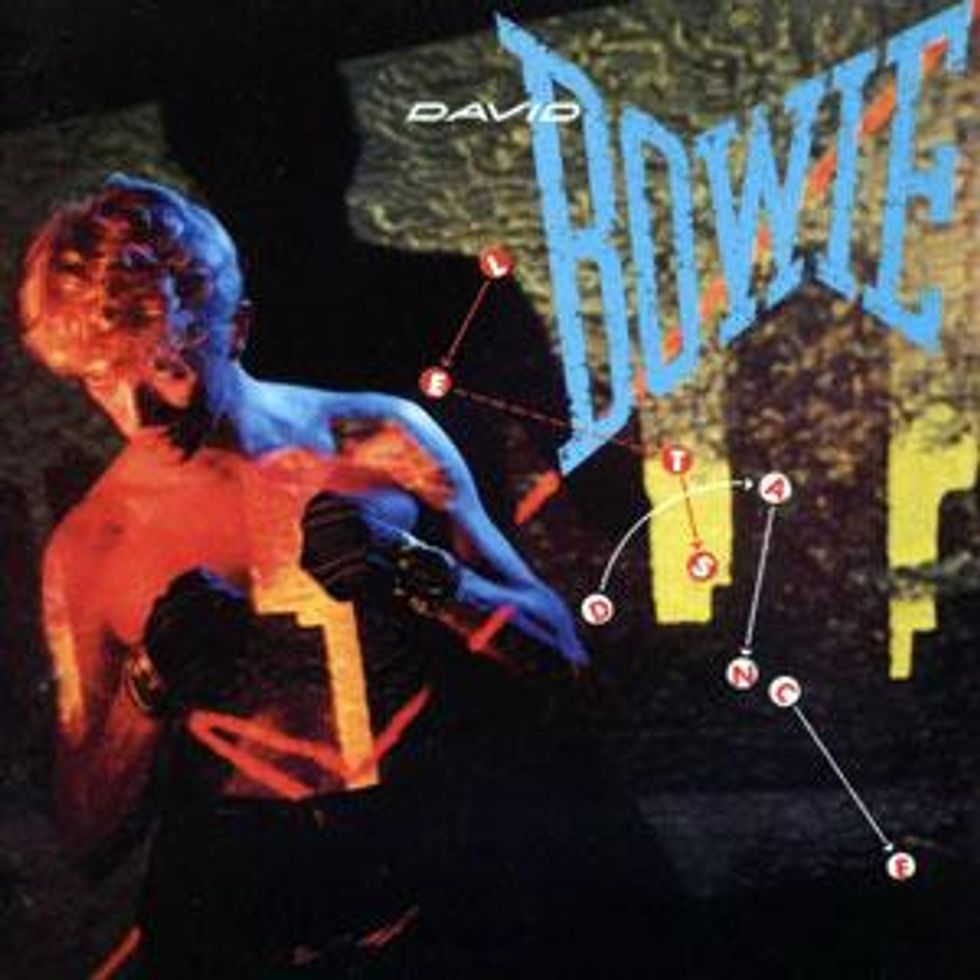 David Bowie releases Let's Dance, his commercial breakthrough in the United States. The title track races to number 1 on both sides of the Atlantic. "At the time, Let's Dance was not mainstream -- it was virtually a new kind of hybrid, using blues-rock guitar against a dance format," Bowie would later say. "It only seems commercial in hindsight because it sold so many [copies]."
David Bowie releases Let's Dance, his commercial breakthrough in the United States. The title track races to number 1 on both sides of the Atlantic. "At the time, Let's Dance was not mainstream -- it was virtually a new kind of hybrid, using blues-rock guitar against a dance format," Bowie would later say. "It only seems commercial in hindsight because it sold so many [copies]."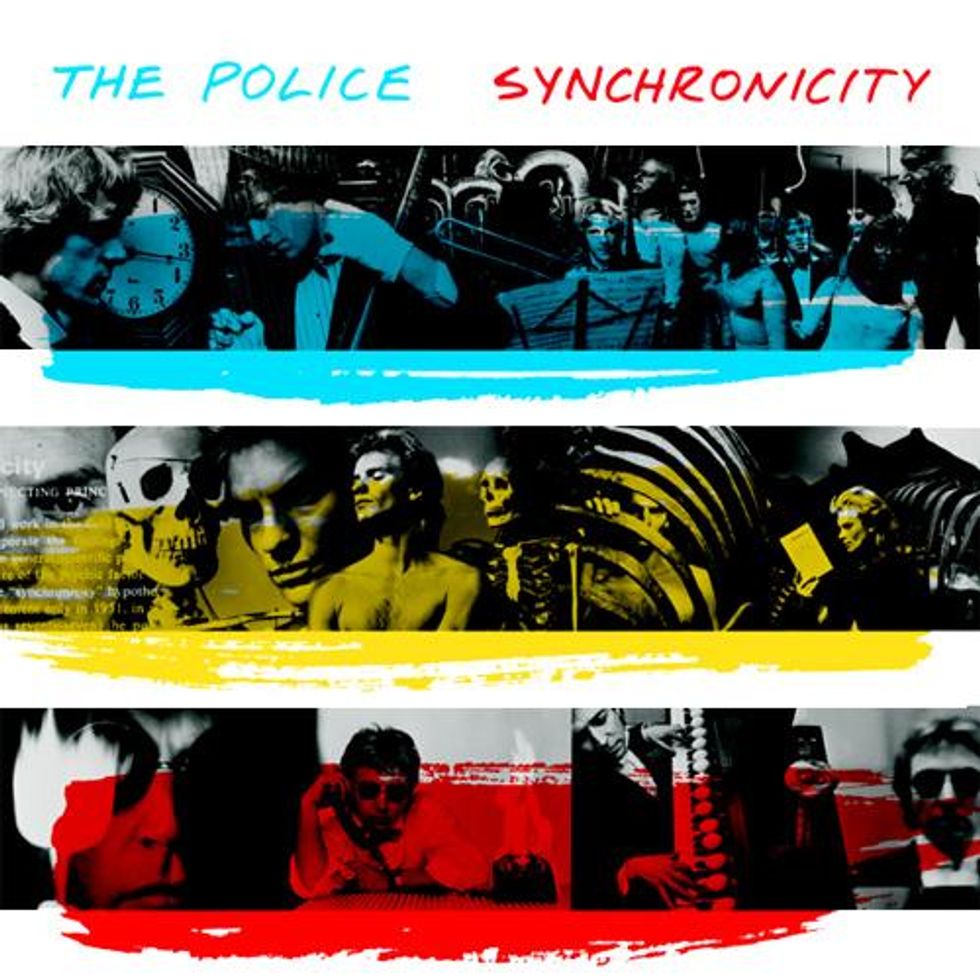 One of the first new wave groups to receive mainstream success, The Police release
One of the first new wave groups to receive mainstream success, The Police release 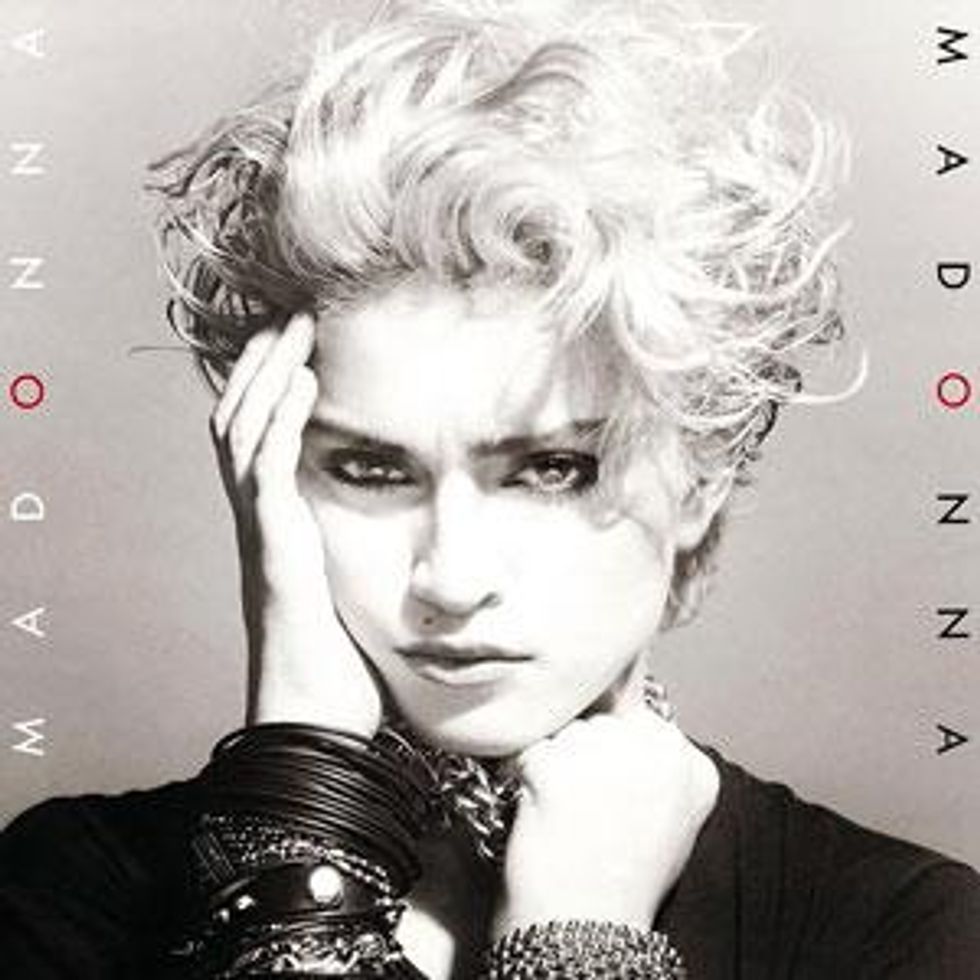 You and Me Both, the second and final album by Yazoo (or Yaz in the United States), is released, featuring the hit single "
You and Me Both, the second and final album by Yazoo (or Yaz in the United States), is released, featuring the hit single "











